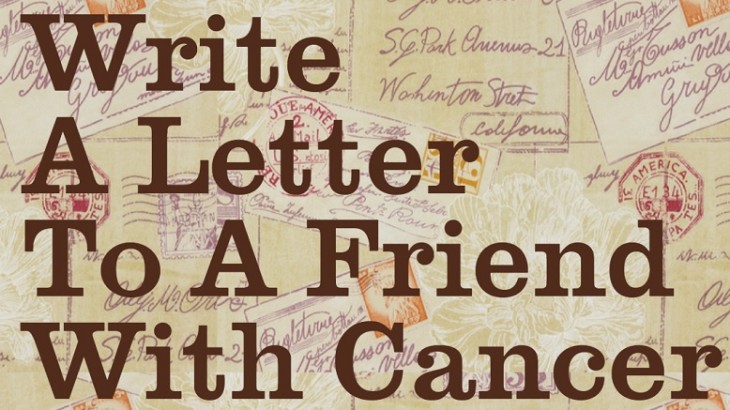Why letters matter

Something as simple as receiving a letter can make the world of difference to a friend or family member suffering from cancer.
The people behind the charity ‘From Me to You’ believe that writing a letter to someone who is about to embark on surgery or treatment for cancer, can have an immeasurable impact on their emotional wellbeing.
‘All too often we hear that emotional support disappears as patients embark on surgery and treatment, as those close to them just don’t know what to say or how to communicate,’ say From Me to You founders, Brian and Alison.
They hope that their story (below) together with their letter writing tips will inspire others to put pen to paper.
When Brian was diagnosed with bowel cancer in 2010, his friend Alison offered to write letters to cheer him up. Over the next two years, as Brian’s cancer moved from stage three to four, Alison’s letters kept on coming.
The letters became part of Brian’s recovery process, while Alison discovered a passion for writing she never knew existed.
Four years on, Brian is now cancer-free, Alison is an author, and the two have a relationship that only the term ‘best friends’ can describe. Alison and Brian are now dedicated to getting us all writing letters!
Keeping people connected via a letter can help tackle the social isolation experienced by so many patients with illnesses, such as, cancer.
Why it’s good to write
Letters – which remain an important part of our future – are rarely misinterpreted, unlike texts and e-mails. A letter can’t be rushed so the intent and voice are stronger.
Research shows that a routine of letter writing can increase levels of contentedness and lower instances of depression. The reader has a choice about when to open your letter. It can lift a mood, provide comfort or be a special moment.
You can fill a letter full of positivity, unlike the other things that come through the letterbox, such as bills. You can express emotions and feelings in letters that you might struggle to articulate face-to-face.
Letters don’t just exist on a screen, they have a place in your home, your coat pocket or your bag. Holding a letter engages the senses of touch and smell – two senses excluded from the digital age. Letters are a wonderful opportunity for reflection – for both the writer and the reader. Letters create a legacy.



